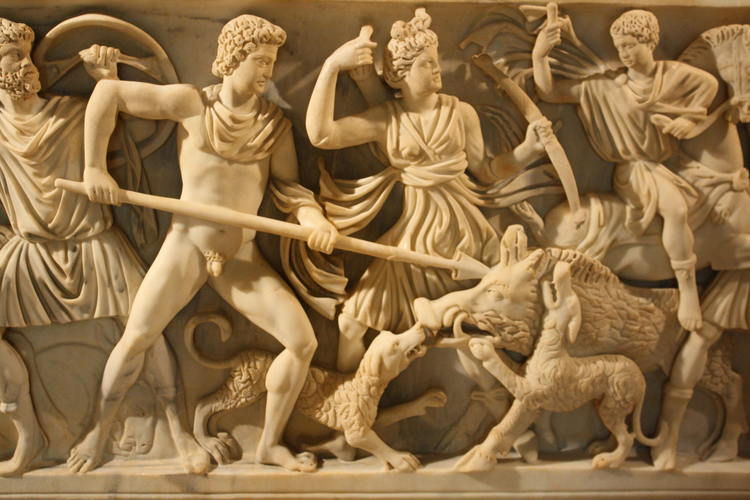Inspiration, Representation, and Bad-Ass Ladies.
- Gatharion
- Oct 29, 2018
- 3 min read
Updated: Mar 26, 2021
What do Captain Picard, Robin Hood, Elwood P. Dowd, and Jean Valjean all have in common?
If you said "those are your boyhood heroes and the literary characters that you find most inspirational", then you'd be eerily inside my head (or just know me reasonably well) and you'd be correct. If you said "they're a bunch of white dudes". you'd also be correct. (Cis and at least nominally heterosexual as well.)
Works of literature and the characters contained therein are well-known for their capacity to engage and inspire. I've seen several memes and posts from those who identify themselves as being from the "Harry Potter Generation" who ask themselves "What would Harry do?" when facing a dilemma. (Although, oddly enough the answer they give themselves doesn't seem to involve relying on their smarter female friend to have done thorough research on the topic.)
The thing is, I'm lucky (privileged you might say) to have had such a wealth of inspirational characters to identify with. One doesn't have to be a hetero cis white male in order to see themselves sipping earl grey on the bridge of the Enterprise or living free in the wilds of Sherwood, but it tends to help. A 2012 study at the Ohio State University found that readers are more likely to engage with characters and model themselves after said characters when it is easy to self-identify with the characters. For example, heterosexual readers were more likely to engage in "experience-taking" if they didn't realize that a homosexual protagonist was gay until late in the narrative. https://www.medicaldaily.com/psychologists-discover-how-people-subconsciously-become-their-favorite-fictional-characters-240435 (Bonus points for anyone who takes the time to find an actual paper related to this study.)
Lack of representation can keep someone from engaging with a work of fiction at all. A friend of mine just wasn't able to get into Tolkien after trying to read the Hobbit and not finding a single female character.

Which finally bring me to the topic that I've really been wanting to discuss, a 19th century novella and the cross-dressing woman who helped the Union win the Civil War!
Last month I went to a talk by Dr. Beth Avila hosted by the Aldus Society in Columbus. https://piraticalpages.com/2018/09/25/presenting-piratical-pages-to-the-aldus-society/
At the talk I was introduced to the book 'Fanny Campbell: The Female Pirate Captain' by Maturin Murray Ballou. While obscure now, it was a popular book when it was originally published in the 1840s, receiving multiple editions and a sequel. It was popular enough that it found its way into the hands of a young Canadian girl named Sarah Emma Edmonds. If that name rings a bell, it's because Edmonds is famous as one of the women who dressed as a man and served with distinction as both a soldier and a spy for the Union during the Civil War. There are books about her exploits and reading those or simply googling her will provide you with more than I'm willing to go into here. (But seriously, do read up on her, she was a bad-ass! Here's a good starting place: https://www.canadashistory.ca/explore/women/soldier-girl-the-emma-edmonds-story)
The titular hero of 'Fanny Campbell' takes to the high seas and embarks upon a career of piracy in order to free her fiance who is being held captive in Cuba. She accomplishes this by posing as a male sailor, leading a mutiny, and basically being more competent at everything than the men. Her disguise as a man, which involves artificially darkening her skin, is convincing enough that she fools all of the sailors under her command and even her fiance for a time. Fanny also leads her crew through naval battles against enemies of the burgeoning United States. Sarah Emma Edmonds did not dress as a man to free her fiance, in fact, she ran away to the U.S. as a teenager to escape a marriage, but she also darkened her skin and succeeded in passing herself off as the bookseller "Franklin Thompson". Like the piratical heroine, Edmonds succeeded in basically being more competent than all of the other "men". Thompson's employer claimed that in his 30 years of business, Thompson was his top seller. Thompson was also proving to be quite the capable spy during the war, until Edmonds contracted malaria and was forced to abandon the identity least she be discovered in the hospital. Eventually a special act of Congress granted Edmonds (then married and known as Seelye) an honorable discharge and a pension. She was accepted as a member of a Union veteran's organization and is buried in the Civil War veteran's plot of Washington Cemetery.
Would Edmonds have thought to try living as a man and serving in war had she not been exposed to the exploits of Fanny Campbell, a literary character who beat the men at their own game and possessed a strong patriotic streak? Impossible to say for certain, but I'm glad that at least one young girl found a character that she was able to identify with.




Comments